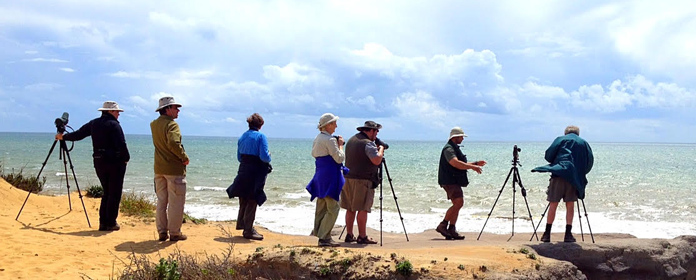Birding: an entrepreneurial biologist's way out
Julián Gayarre (Biology 96) explains how he started his environmental tourism business in the Navarre Pyrenees.

Julián Gayarre (Biology 96) worked in numerous companies related to the environment, the research and even the financial sector, until 2006 when he dared to realize his dream and created Metsola Birding: an environmental tourism offer that is a success among ornithology enthusiasts in the UK, Germany and the USA.
- What did you do before starting Metsola Birding?
I have worked in several sectors. From the environmental Departments of technology centers and research, to sectors related to food, and even finance.
- How did you come up with the idea of a accommodation with the added bonus of offering bird watching?
This idea came up little by little. I had studied Biology with the specialization program in Zoology and Botany and my passion for nature always pushed me to buy books on this subject. As nature photography was also one of my great hobbies -along with traveling-, I visited places like Alaska, Kenya, Tanzania, Chile, Argentina, Antarctica, Arctic, Finland ..... In those trips I realized that this subject of "tourism", which combines travel with nature, was much more developed in other places. So as a connoisseur of Spanish biodiversity I thought it was an opportunity to start a project that combined my two passions, and in 2006 I formed Metsola Birding.
- How is your initiative working and what is your client's profile like?
The beginnings are usually not easy. We had to convince groups of travelers from other cultures to trust in our ability to offer them an unforgettable experience. I joined the world's largest Birding fair, the British BirdFair, held every third weekend in August in Rutland. I went as a visitor but also to make contacts, and in the last few years I attended with my own stand and gave a talk at lecture. I also organized a Fam Trip (an invitation to tour operators) where they experienced first hand our Birding experience. This strategy resulted in the visit of numerous groups of tourists interested in this field.
In most cases they were British tourists. Also, but to a lesser extent issue, Germans and Americans. With people more or less specialized in this field, even people who dedicate their lives to fill in the largest issue of bird species sighted.
- How do you consider that this initiative combines your facet as a biologist with that of an entrepreneur?
For me, this project has allowed me to make known outside Spain some natural values that we do not know the value they really have. When you are visited by tourists from countries where there are only a few protected areas or where many species are endangered, you realize this.
On the other hand, the entrepreneurial facet has brought me a lot of satisfaction. Also for bringing to my environment - valleys and small towns - groups of tourists who generate income and who value the natural wealth that we have inherited from our predecessors.
- What is special about Isaba (a village in the Roncal valley, in Navarra), for the subject of environmental "touristproposal " that you offer?
Isaba is located in a strategic place. From there it is not necessary to travel long distances to reach different ecosystems where different species can be sighted. In addition, the Western Pyrenees are not far from airports such as Bilbao (with a large frequency of flights to the UK). On the other hand, in winter we have a high attendance of tourists looking for snow, in summer the occupation is almost total to look for the freshness of the mountain, and in autumn we are very close to the Irati Forest.
Actually, there is a great lack of knowledge -particularly at the local level- about the value of the Navarre Pyrenees nature reserve, although there have been governmental campaigns to try to improve it. In fact, it is a pity that the Natural Park of the Navarre Pyrenees has not yet been created.




